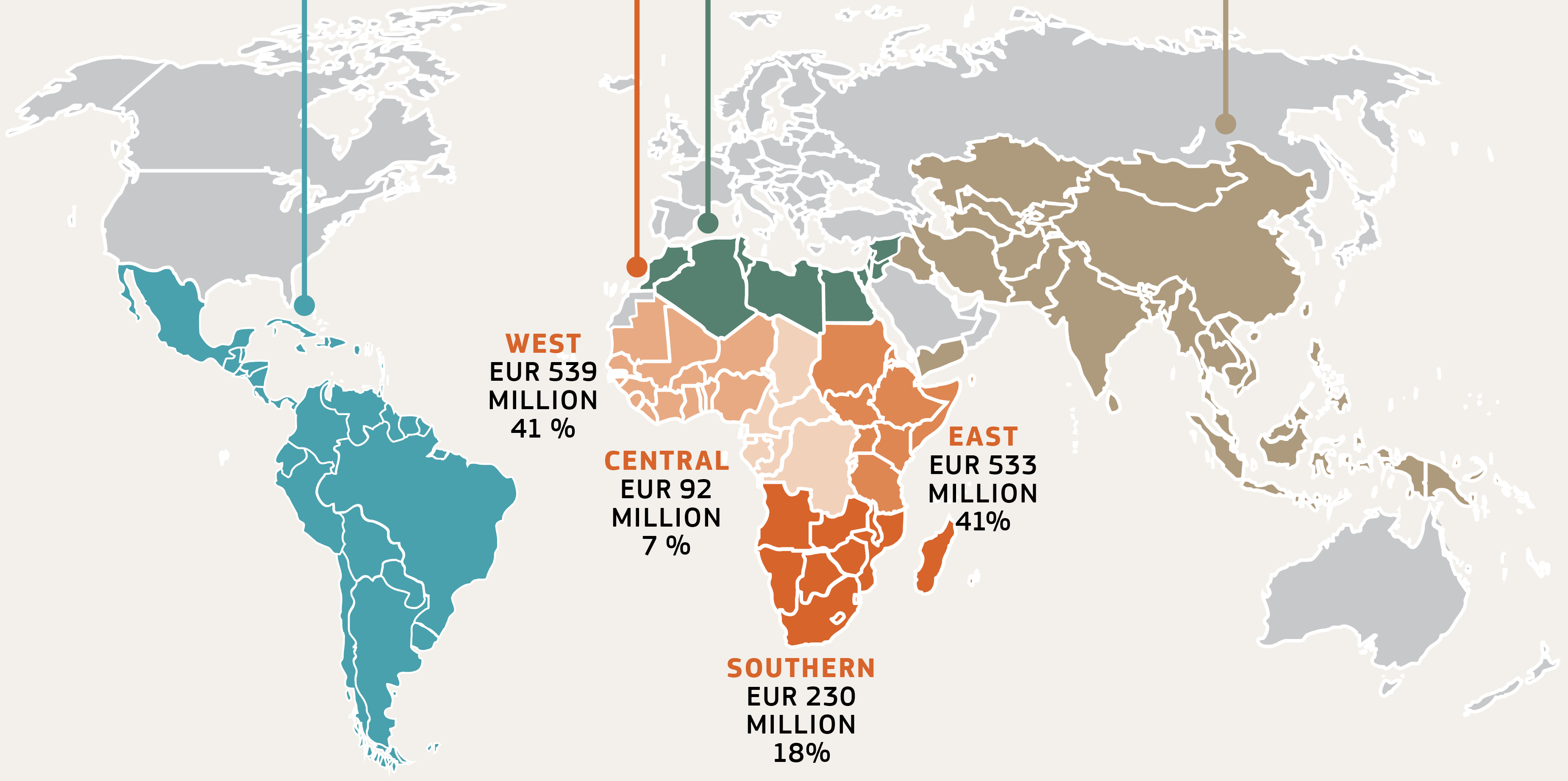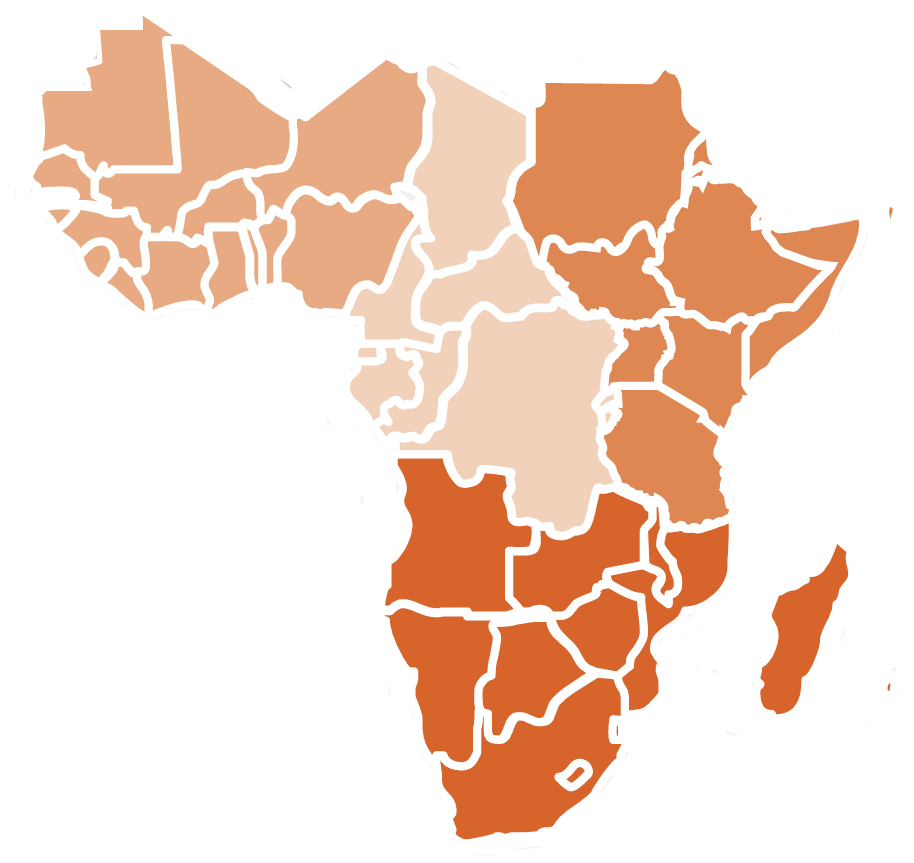1.2 The EU learning curve on decentralisation, local development and local authorities
EU involvement in matters of decentralisation and local development has gone through a cycle of experimentation and learning by doing to gradually develop a coherent policy framework. This process has been driven by dynamics in partner countries, changes in international thinking and evolving EU priorities in terms of development and governance.
The 4 major phases of the EU engagement strategies in local development
1 (1980 to mid-1990s):
PHASE I: INTERVENING THROUGH DEVELOPMENT PROJECTS AT THE LOCAL LEVEL
- Micro-projetcs
- Rural development programmes
- Support to community groupds, Local non-governmental organisations
NEW WAVE OF (DEMOCRATIC) DECENTRALISATION REFORMS LEADING TO RECOGNITION OF ELECTED LAs
2 (mid-1990s on):
PHASE II (EARLY): PROGRESSIVE RECOGNITION OF LAs AS KEY ACTORS IN LOCAL DEVELOPMENT (mid-1990s on)
Recognition of the mandate and legitimacy of the newly elected LAs i existing micro-porjects and rural development programmes
PHASE II (LATE): INTERVENING THROUGH DEVELOPMENT PROJECTS AT THE LOCAL LEVEL
Link between decentralisation reform and local development lost as focus increases on system support
3 (2005 on):
PHASE III: GROWING RECOGNITION OF LAs IN INTERNATIONAL AND EU AGENDAs
- Revised Cotonou Agreement (2005)
- Creation of the new CSO-LA Thematic Programme (2006)
- First communication on Las (2008)
- Landmark communication on LAs (May (2013)
4 (2013 on):
PHASE IV: RECONNECTING DECENTRALISATION AND DEVELOPMENT THROUGH TERRITORIAL APPROACHES
Unleashing the potential of territories to promote growth, social cohesion and environmental sustainability
//uses classList, setAttribute, and querySelectorAll
//if you want this to work in IE8/9 youll need to polyfill these
(function(){
var d = document,
accordionToggles = d.querySelectorAll('.js-accordionTrigger'),
setAria,
setAccordionAria,
switchAccordion,
touchSupported = ('ontouchstart' in window),
pointerSupported = ('pointerdown' in window);
skipClickDelay = function(e){
e.preventDefault();
e.target.click();
}
setAriaAttr = function(el, ariaType, newProperty){
el.setAttribute(ariaType, newProperty);
};
setAccordionAria = function(el1, el2, expanded){
switch(expanded) {
case "true":
setAriaAttr(el1, 'aria-expanded', 'true');
setAriaAttr(el2, 'aria-hidden', 'false');
break;
case "false":
setAriaAttr(el1, 'aria-expanded', 'false');
setAriaAttr(el2, 'aria-hidden', 'true');
break;
default:
break;
}
};
//function
switchAccordion = function(e) {
console.log("triggered");
e.preventDefault();
var thisAnswer = e.target.parentNode.nextElementSibling;
var thisQuestion = e.target;
if(thisAnswer.classList.contains('is-collapsed')) {
setAccordionAria(thisQuestion, thisAnswer, 'true');
} else {
setAccordionAria(thisQuestion, thisAnswer, 'false');
}
thisQuestion.classList.toggle('is-collapsed');
thisQuestion.classList.toggle('is-expanded');
thisAnswer.classList.toggle('is-collapsed');
thisAnswer.classList.toggle('is-expanded');
thisAnswer.classList.toggle('animateIn');
};
for (var i=0,len=accordionToggles.length; i
Where did the money go?
EU funding in support to decentralisation, local governance and local development

NEIGHBOURHOOD SOUTH EUR 88 MILLION 4%
LATIN AMERICA
EUR 252 MILLION 13%
AFRICA- EUR 1.3 BILLION 69%
WEST: EUR 539 MILLION 41%
CENTRAL: EUR 92 MILLION 7%
SOUTHERN: EUR 230 MILLION 18%
ASIA AND PACIFIC
EUR 289 MILLION 14%
|
To go further... read this
|
|
To go further... watch this
|




